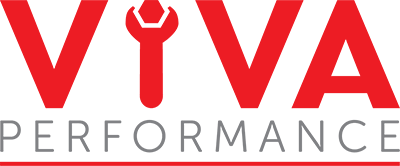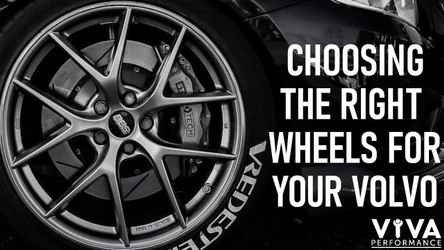Choosing the RIGHT Wheels for Your Volvo
Posted by Max Rundlett on 25th May 2020
If you've ever searched for wheels that will fit your Volvo, odds are you've been disappointed in the lack of options.
5x108 is the bolt pattern that Volvo has used on most of its cars since the 60's beginning with the 140 and 160 models, with just a few exceptions including some early 850 models and 1st generation S/V40s.
Not many manufacturers use this bolt pattern on their cars, at least in the United States. Ford, Jaguar, and Land Rover have models that use these dimensions. Oh, and Ferrari. And even then, most of them are not bolt-up replacements without centering rings or having the center bore's altered.
Thankfully, aftermarket wheel manufacturers haven't forgotten about us. Popular brands like TSW, BBS, and Enkei understand just how awesome our Volvos are.
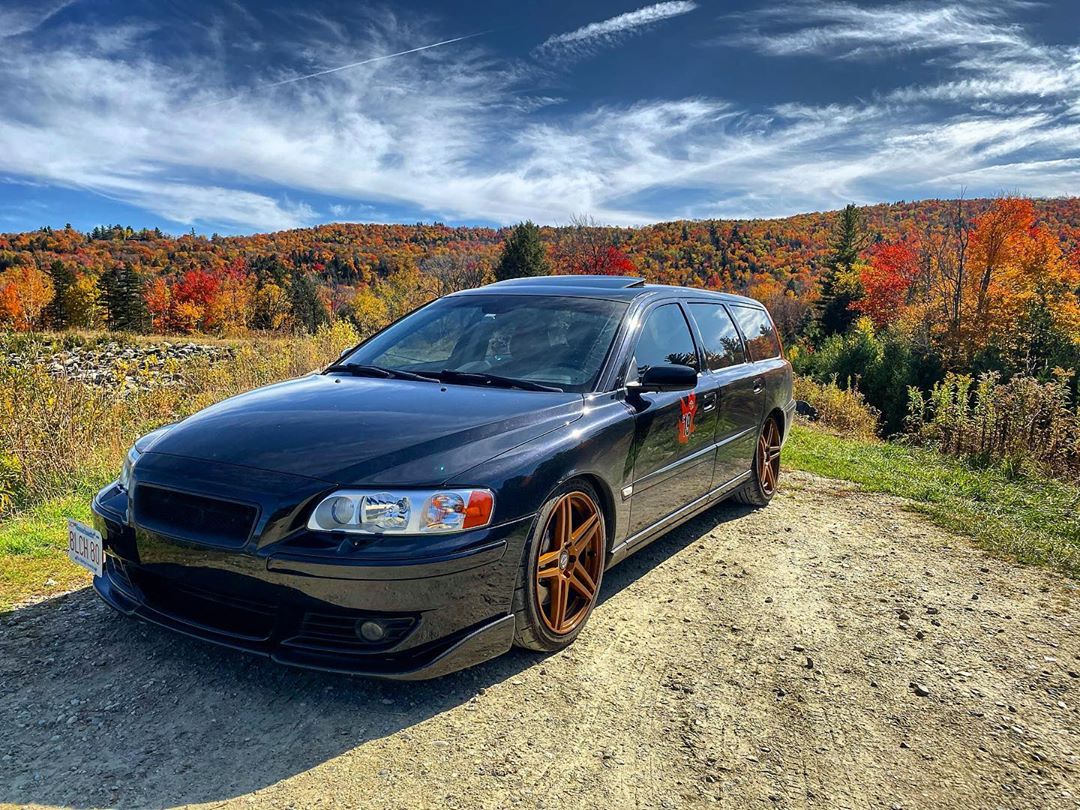
Photo: Eric Sherman (@esherm_r)
If you need help finding wheels that are right for you, consider our 3-S system.
Size
First, you need to decide what size is best for you. This is very dependent on goals, and can even factor into our next S, Style.
Typically, the larger the wheel, the thinner the sidewall on the tire. This means comfort may be compromised if you go too big.
However, with a thinner sidewall, you get a more precise turn in on corners due to reduced flex in the tire. Thicker sidewalls and smaller wheel may be best used in off-road applications.
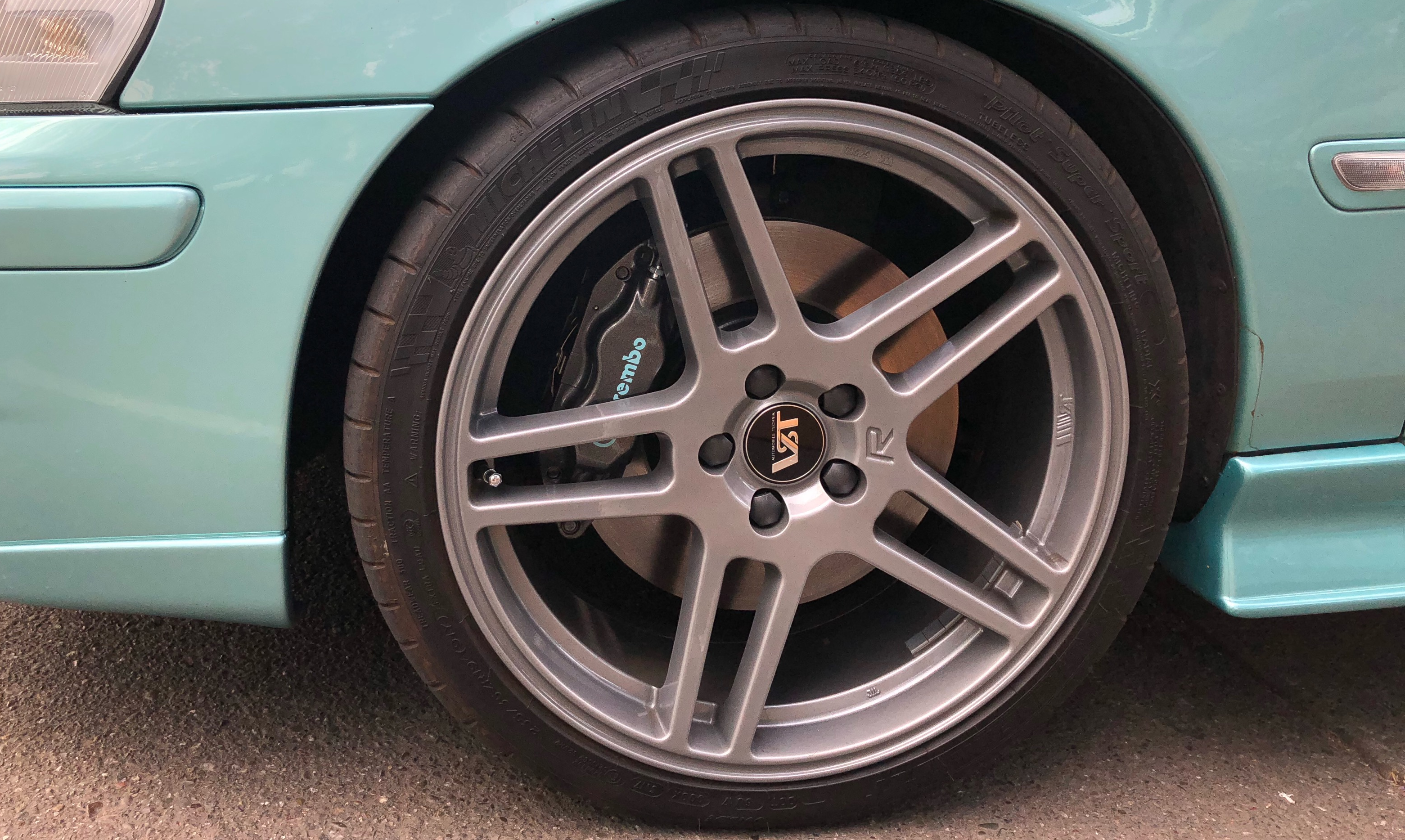
Another factor to consider when choosing an appropriate wheel size would be the size of your brakes. Typically, the front brakes are the limiting factor in what size wheels you can use.
For instance, on the P2 S60R/V70R, the brakes require a 17" or larger wheel to clear. The stock Volvo Pegasus wheels are specifically designed so that the spokes also clear the larger calipers without the need for wheel spacers.
Style
We all want our wheels to look good. Subjectively speaking, they are the single largest factor in changing how a car looks.
However, choosing the right combination of width, offset, and face can prove to be difficult.
Width and offset go hand-in-hand. For those unfamiliar with the term, offset is the distance from the mounting point of the wheel to the center of the barrel.
Offset can be positive, zero, or negative depending on the wheel.
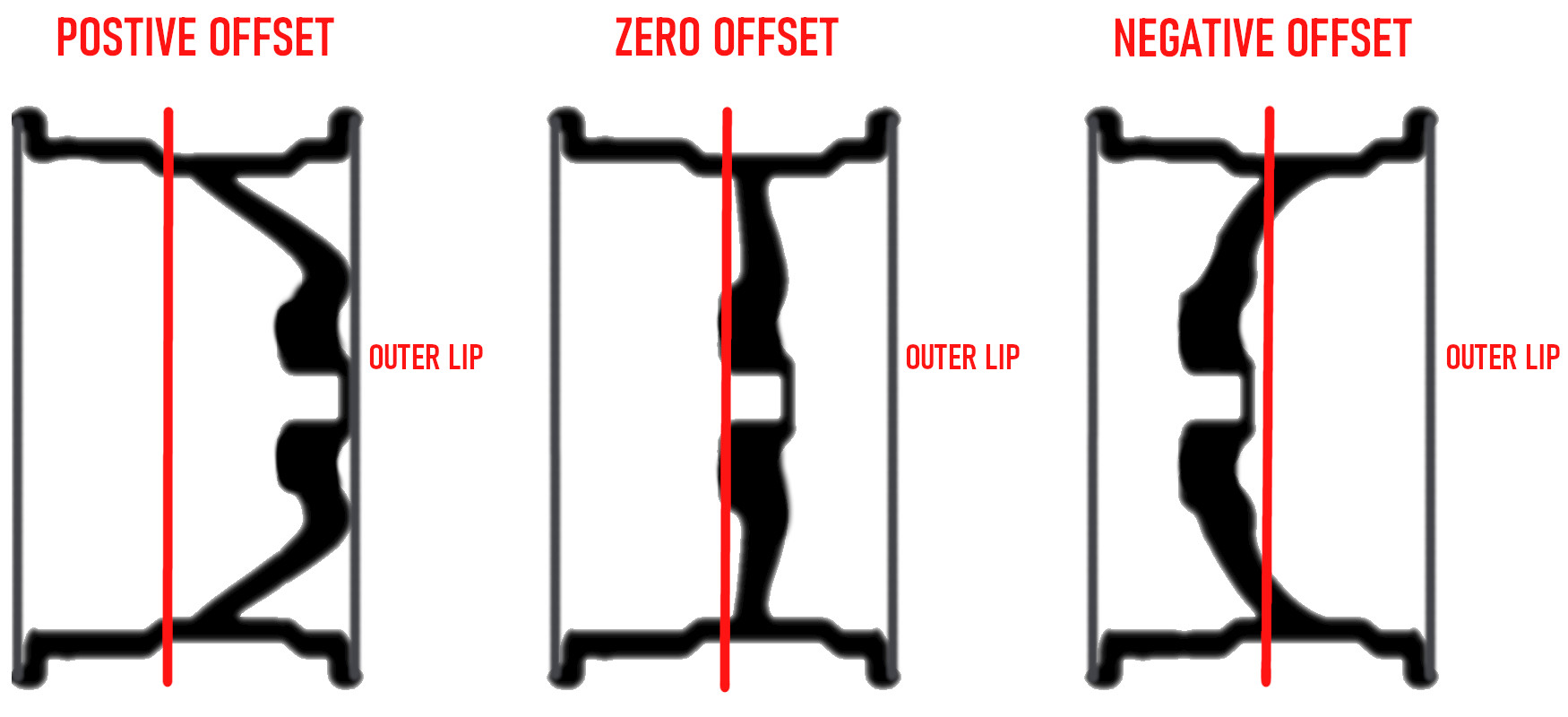
To calculate exactly what kind of fitment you are looking for, it may be best to get a rough idea from an offset calculator.
Wider wheels have more friction than narrow wheels, but that means they also have more grip. For performance applications, wider wheels are typically the way to go, however too wide can lead to a decrease in turning radius and may require altering of your fenders.
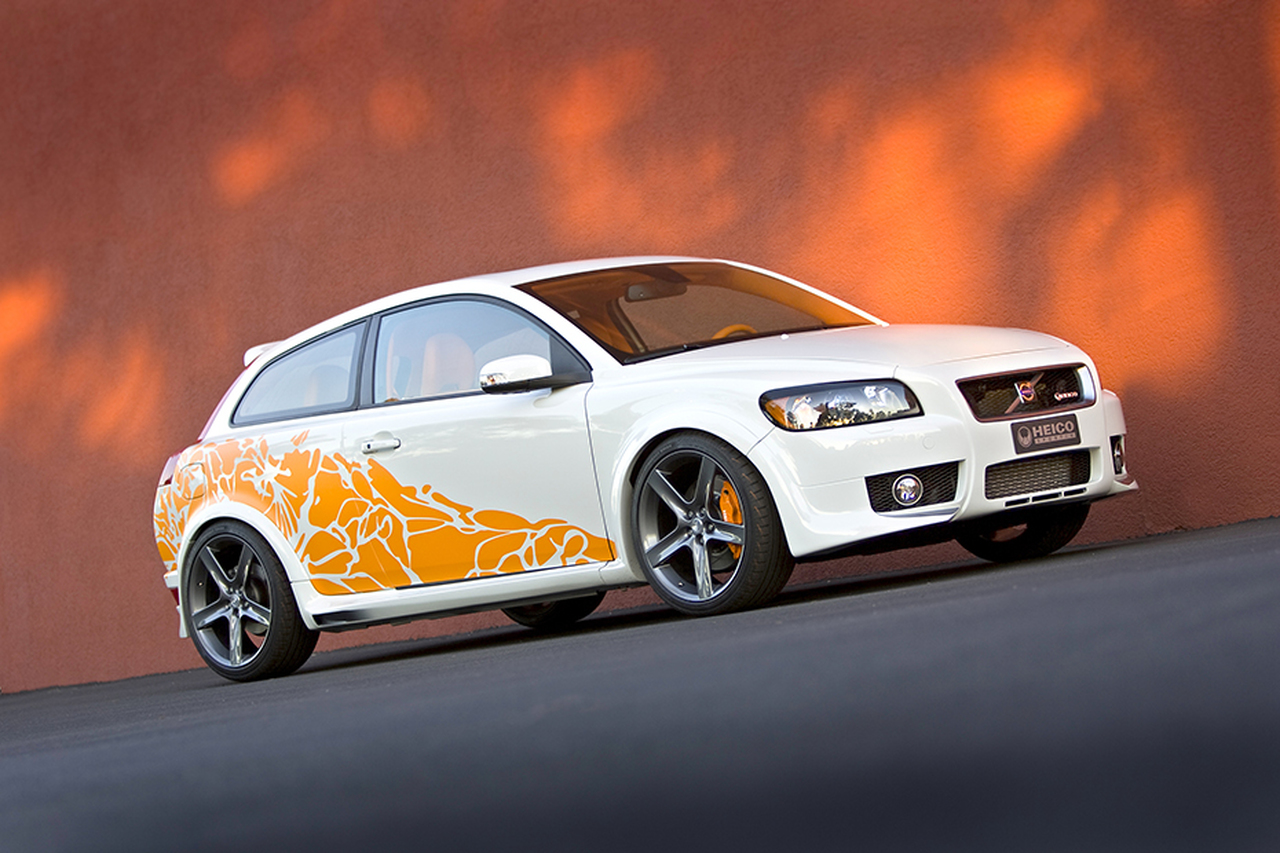
The design of the wheel face is what most people immediately notice though, and fortunately for you we offer rally-inspired Fifteen52, German TUV tested Heico (pictured above), OEM Volvo, and everything in between.
Safety
Wheels are made out of many different materials and molding processes. The most common materials are steel and aluminum alloy, but since Volvos and most modern cars utilize aluminum alloy, that's what we will be focusing on.
When shopping around, you may be inclined to choose a less expensive replica wheel. It looks the same, just without the brand name and price tag. You may be correct, but that type of thinking doesn't include the engineering that goes into high-quality wheels.
There are three main molding processes for aluminum wheels. This list below is in order from strongest to weakest:
- Forged
- Flow Form
- Cast
Forged wheels are the strongest of the group. The wheels are heated up to a high temperature and manipulated so the aluminum grain becomes directional. This allows for manufacturers to cut away large amounts of material while maintaining strength.
Flow forming, or Rotary Forged, is stronger than cast but weaker than fully forged. These wheels are spun at high speed to create a directional grain in the aluminum, changing the molecular properties. This is the process which most of the wheels we offer are made by, such as Forgestar.

Cast wheels are the weakest of the bunch and usually the least expensive. To achieve similar strength of flow formed or forged wheels, cast assemblies are usually heavier. Be weary of lightweight cast wheels if you are tracking your car, or regularly go for spirited drives. They are more susceptible to cracking and can leave you in a bad place if things go south.
Whichever way you decide to go, just know that we are there to help! Email us at parts@vivaperformance.com so we can help you in choosing your next set of wheels!
